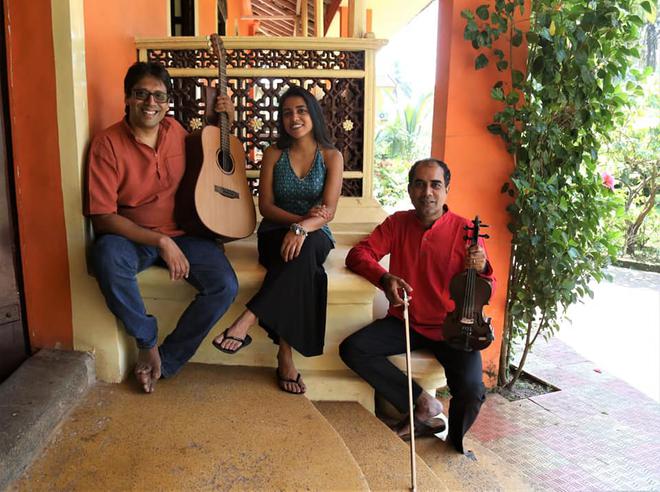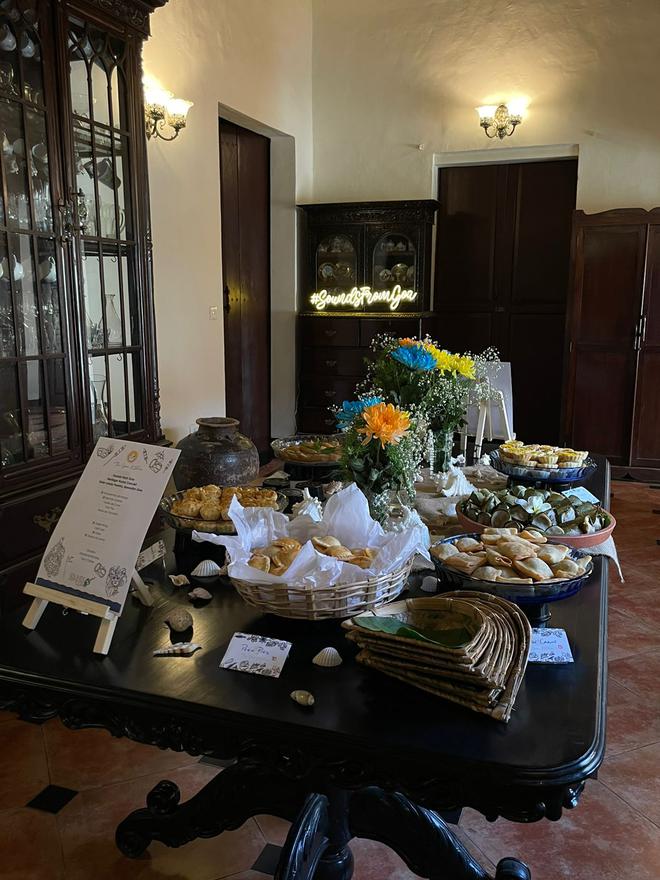Serenaded by floral gardens, a path unfolds, guiding visitors to the iconic yellow balcao of Solar Loiola Pereira in Benaulim. Rhythmic beats echo from the ghumot, a local clay drum in Goa. As the sun dips, casting a radiant glow upon the Azulejo tiles, Omar De Loiola Pereira, custodian of this ancestral abode for three generations, tunes his guitar with a radiant smile, extending a warm welcome to the audience, a mix of discerning locals and curious travellers, all seeking to unearth the historical Portuguese roots of Goa.

The production of ‘Sounds From Goa’ was conceptualised by Omar and his friend Schubert Fernandes in 2020 to further the cause of folk and Goan-Portuguese music as a heritage home concert. He is joined by his troupe — the gracious Nadia Rebelo — one of the only few remaining Fadistas in India, and Selwyn Menezes on violin. . “We felt that we should create an ambience where our rich culture can all come together in a way that audiences not only hear but also touch and feel and experience these sounds,” Schubert says enthusiastically.
Upcoming events
A large spread of Goan savouries and sweets along with fresh kokum juice await the guests before the concert. Vintage table setting with doilies, hold a selection of snacks such as empadinhas (mini pies), forminhas (canapes), rissois (mini croquettes filled with cheesy stuffing), leaf-wrapped patoleos, holle and pasteis de nata. Served by yet another true blue Goan venture by Oliver Fernandes called The Goan Kitchen, the food sets the tone of the evening.
The two-hour concert not only embraces popular Goan melodies but also delves into the realm of Fado singing, a nearly forgotten Portuguese ballad style. It commences with a tribal Goan melody driven by the resonant ghumot, traversing the spectrum of influences that define Goan music. Culminating with ‘Marcha das Fontainhas,’ a Portuguese-style rendition of a Goan folk song, the concert navigates through diverse musical genres. Additionally, it showcases the Dekhni and the Mando, both locally evolved Konkani musical forms from the 19th and 20th centuries, where dancers grace the stage.

Only a few Goan musicians are trying to resist the obliteration of traditional styles like Fado and Mando in modern cultural contexts. Kaushal Kharkhanis, a digital nomad who has travelled extensively in South America and speaks fluent Portuguese has attended the weekly show held at MadraGoa, a heritage performance hall within the Centre for Indo-Portuguese Arts in Panjim, which stands as the venerable cradle of Fado and Mando. “Even if one does not know Portuguese, it doesn’t stop you from experiencing the beauty of this rare art,” says Kaushal.
MadraGoa is an intimate concert space, with 40 seats, and a floor-to-ceiling mosaic panel bedecked in a kaleidoscope of hues, a splendid canvas merging the essence of Panjim, Lisbon, and Coimbra. Sonia Shirsat, another Goan fadista commanding immense repute for her powerful singing, headlines the show at MadraGoa. It appears that the local music scene is slowly but steadliy attracting tourists who are immersing themselves in culture, while moving away from the Goan party scene.







